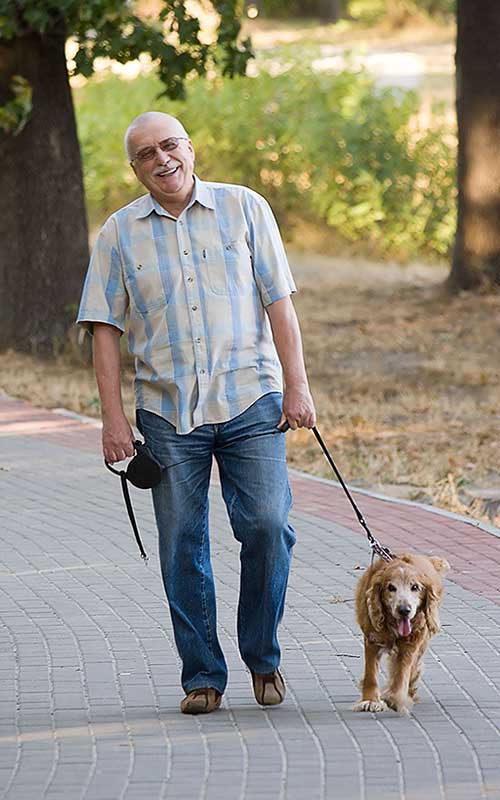 Every week we get calls from around the world asking us the same question. “Can you recommend someone who would look after our ageing parents back in India?”.
Every week we get calls from around the world asking us the same question. “Can you recommend someone who would look after our ageing parents back in India?”.
Unfortunately, in most cases the short answer is “no”.
While India may be the head quarters of outsourced services for the software and back-office industries, we are as yet unable to find high-quality service providers for looking after ageing parents.
This is not just because there are so few such home health care agencies ready to take on such a role, but is also because of the myriad constraints that the NRIs and their parents put on the potential service providers.
Ideally what you are looking for is a continuing care facility or a multi-level care facility such as those found in the west which provide all the services necessary to an ageing resident, whatever be their physical and mental condition, now and in the future.
Such establishments are rare in India, at this point in time, though a few are coming up in various parts of the country.
Realistically though, for now your best option is to find an immediate family member or a close relative to look after your parents and arrange for a home healthcare service provider to assist the family member/relative in the care giving process.
Options
If an immediate family member or close relative is not available, look out further for a relative, who because of financial reasons, would be willing to stay with your parents and look after them for a monthly salary. This would be a win-win situation for both parties as it gives you a dependable and trustworthy resource to be your representative at home while providing this relative with boarding, lodging and a certain amount of financial independence. Of course, it may not be fair to have them look after all aspects of caregiving (depending on the condition and needs of your parents). So, you can arrange for professional home care service provider to assist this person in the routine aspects of caregiving.
In the next article we will see what are the common constraints people face and how some of those could be tackled.
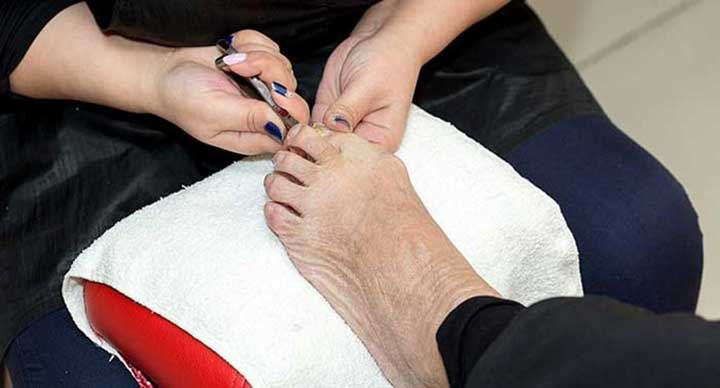
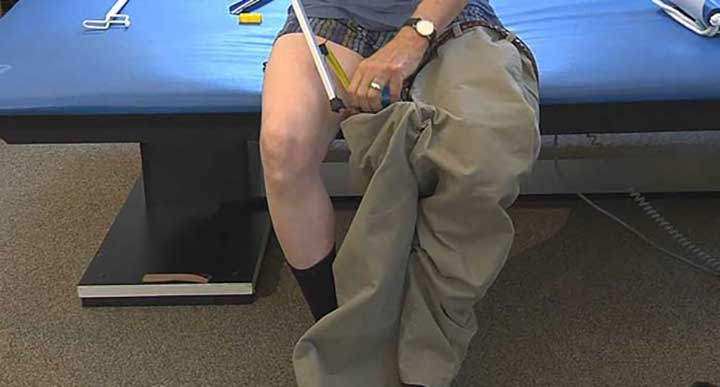 I read an article recently where it states that sitting for long periods is the new smoking.
I read an article recently where it states that sitting for long periods is the new smoking. Parkinson’s is an incurable neurodegenerative disease that affects 1 million Americans. The biggest risk factor is age, but certain genetic mutations can increase risk too. 23andMe reports two of them to its customers, which each increase the chance of developing Parkinson’s between about 30 and 75 percent. (Sergey Brin, the Google cofounder and ex-husband of 23andMe founder and CEO Anne Wojcicki,
Parkinson’s is an incurable neurodegenerative disease that affects 1 million Americans. The biggest risk factor is age, but certain genetic mutations can increase risk too. 23andMe reports two of them to its customers, which each increase the chance of developing Parkinson’s between about 30 and 75 percent. (Sergey Brin, the Google cofounder and ex-husband of 23andMe founder and CEO Anne Wojcicki,  Joy, frustration, irritation, adjustment, finally happiness! Getting your parents to move in with you is a tough proposition. When they finally agree to move in, it requires a change in the mindset of everyone. The initial euphoria on both sides slowly moves through difficult periods of adjustment leading both sides to question the decision. But if you persevere and remain true to the reason as to why you want them to be with you, it is very rewarding in the end. It is far more difficult for our parents to adjust since it means giving up ostensibly their independence. Giving the limited space in our homes, it also means giving up prized possessions so as to accommodate everyone. It also meant making the home more secure,
Joy, frustration, irritation, adjustment, finally happiness! Getting your parents to move in with you is a tough proposition. When they finally agree to move in, it requires a change in the mindset of everyone. The initial euphoria on both sides slowly moves through difficult periods of adjustment leading both sides to question the decision. But if you persevere and remain true to the reason as to why you want them to be with you, it is very rewarding in the end. It is far more difficult for our parents to adjust since it means giving up ostensibly their independence. Giving the limited space in our homes, it also means giving up prized possessions so as to accommodate everyone. It also meant making the home more secure, 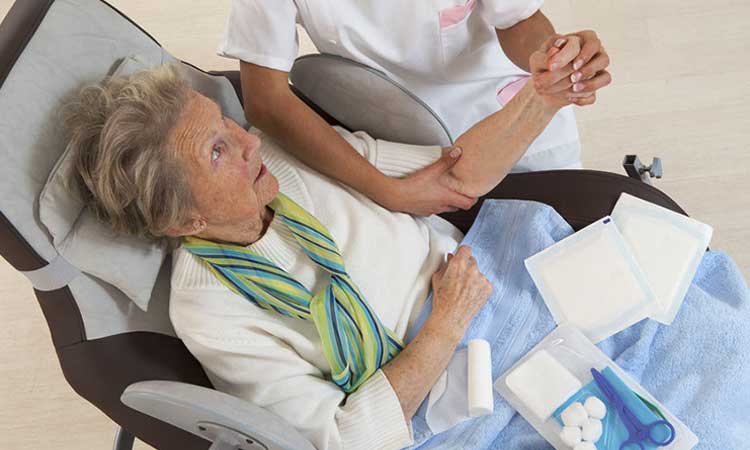 What is home health care?
What is home health care?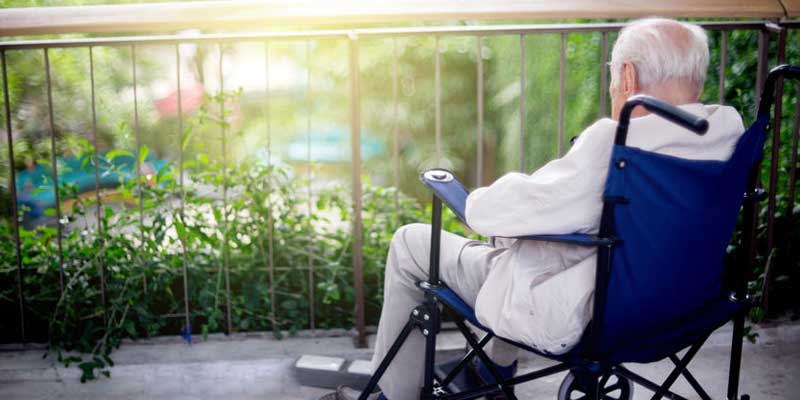 Though this may sound pithy, it is true that old people are like children. And sometimes, the older they get, the more child-like and/or childish they become. While this can be endearing at times, it can also be very frustrating and annoying. Not to mention, difficult to manage.
Though this may sound pithy, it is true that old people are like children. And sometimes, the older they get, the more child-like and/or childish they become. While this can be endearing at times, it can also be very frustrating and annoying. Not to mention, difficult to manage.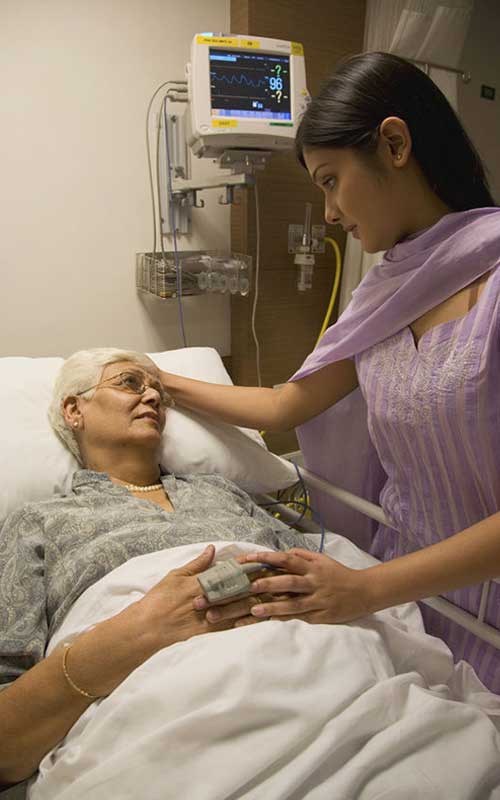 Most elderly ladies, especially in South India, have worn nothing but sarees all their lives. While the saree is an elegant dress, it is quite a handful to drape, even for a normal person. But to have to drape it on another person, that too someone who is confined to their bed is not only tedious but also difficult to manage for multiple reasons. Just imagine having to change the saree every time there is a diaper ‘accident’ and you will understand some of the problems faced in such situations.
Most elderly ladies, especially in South India, have worn nothing but sarees all their lives. While the saree is an elegant dress, it is quite a handful to drape, even for a normal person. But to have to drape it on another person, that too someone who is confined to their bed is not only tedious but also difficult to manage for multiple reasons. Just imagine having to change the saree every time there is a diaper ‘accident’ and you will understand some of the problems faced in such situations.
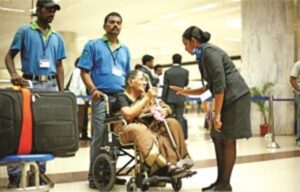 I recently took my mother-in-law to Mumbai for a family wedding. While she can walk a bit, she finds standing for extended periods and walking long distances very painful, so I ordered wheelchair support for her at the time of check-in.
I recently took my mother-in-law to Mumbai for a family wedding. While she can walk a bit, she finds standing for extended periods and walking long distances very painful, so I ordered wheelchair support for her at the time of check-in.